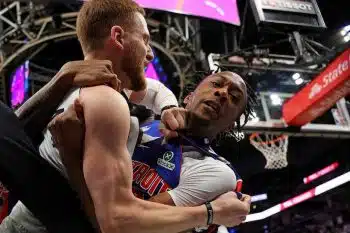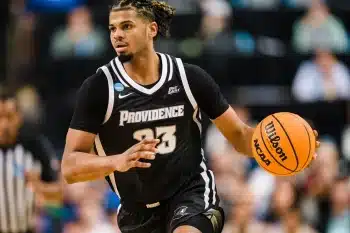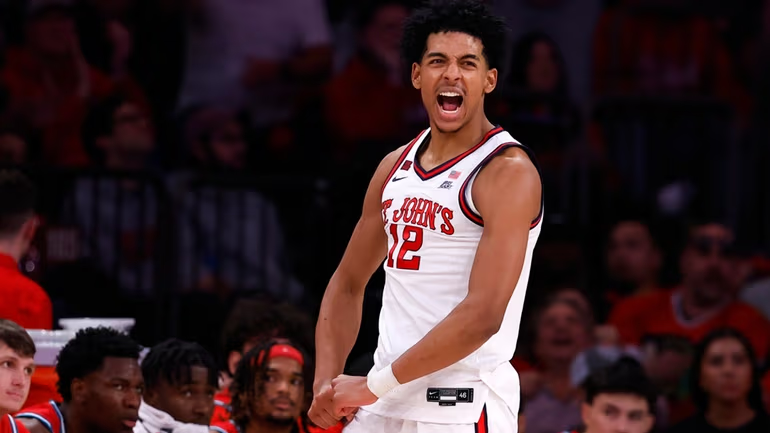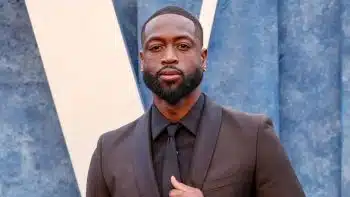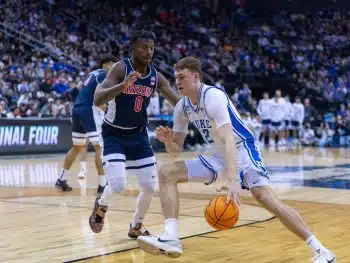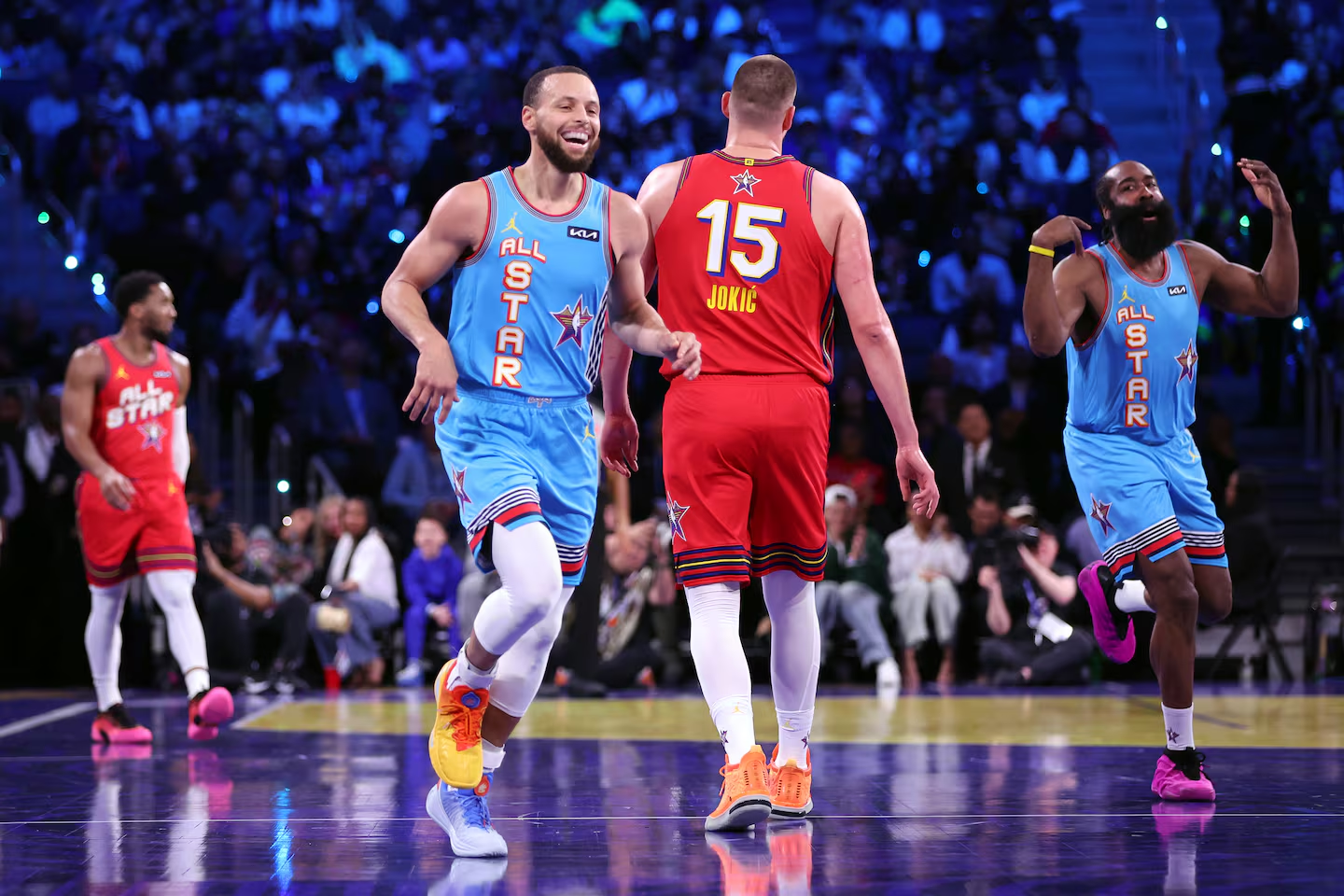NBA
Let’s Trade Celtics Forward Jeff Green
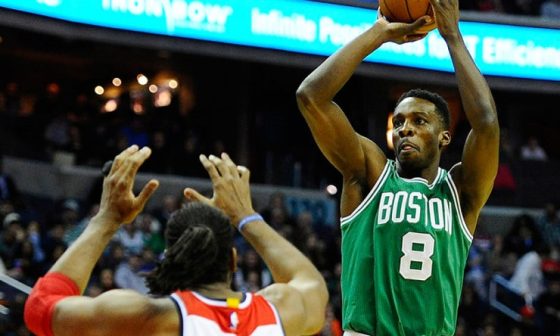
Last month, the Boston Celtics traded Rajon Rondo to the Dallas Mavericks. Rondo was the last remaining piece of the Celtics’ 2008 championship team. As we move closer to the NBA trade deadline, the consensus belief is that Celtics general manager Danny Ainge will look for the best deals possible for Jeff Green and a few other veteran players.
At age 28, Green is having his best statistical season. Through 32 games played, Green is averaging 17.9 points, 4.3 rebounds and 1.6 assists on 31.1 percent shooting from three-point range, and 43.5 percent shooting from the field.
At 6’9, 235 pounds, Green is a tweener. On offense, he is most effective playing as a small-ball four, but is often times over-sized on the defensive end by opposing power forwards. While Green can stretch the floor as a small-ball four with his shooting (career 34.1 percent from three-point range), his 7.3 percent rebound rate is very low for a power forward (just 4.7 rebounds per 36 minutes this season), which is problematic.
Defensively Green is over-matched by most opposing power forwards, but is capable of guarding opposing small forwards, though he is not a lock-down defender by any means. In early December, Celtics head coach Brad Stevens noted that Green had shown improvement defensively.
“He’s played well, defensively, this year,” Stevens said. “I think it’s been a good area of growth for him. [Friday] night (against the Lakers), he took it and really stepped it up a notch, to the point where he got tired and came out of the game twice. And that’s good. That’s a really good thing. Any time you’re guarding a guy like Kobe, you’re going to be absolutely locked in. Hopefully he can continue to grow in that area because he has played a good defensive season so far.”
While Green has been somewhat better defensively this season and is scoring more than ever with a 54.2 true shooting percentage (second best percentage of Green’s career), advanced metrics suggest that he is overall not helping the Celtics win games. As of today, Green has a PER rating of 14.68, which is just below the league average of 15. Also, Green has a -3.51 real plus-minus rating, and -0.51 WAR rating. Lastly, the Celtics have a -5.8 net rating when Green is on the court and a +7.7 net rating when he is off the court. Teams that are heavily invested in these sort of metrics may balk at the idea of surrendering real assets for Green, who is set to make $9,200,000 this season and has a player option for $9,200,000 next season.
So, which teams may Green appeal to in the trade market? Most likely fringe contenders looking for that last piece to get over the hump and contenders looking for a scoring forward to come off the bench and knock down three-pointers, and provide competent perimeter defense.
What may Boston want for Green? Well they have young prospects at center with Kelly Olynyk and Tyler Zeller, a shooting guard prospect in James Young, a young, skilled power forward in Jared Sullinger, and a point guard prospect in Marcus Smart. The Celtics are also owed several future first and second round draft picks, which are listed here. Thus, the Celtics, who are in full rebuild mode, are likely looking for more young talent at small forward and in the backcourt, as well as more draft picks. Ainge will also be reluctant to add any player contracts that go beyond the 2015-16 season as the Celtics are set to have just $8,269,663 in guaranteed salary heading into the vaunted summer of 2016 (though they will have team options and extensions to consider at that point).
With all of this in mind, let’s take a look at some hypothetical trades that make sense.
Portland Trail Blazers –
Outgoing Players: Dorell Wright, Thomas Robinson, and CJ McCollum.
Incoming Players: Jeff Green.
In this scenario, the Portland Trail Blazers add scoring and depth to their bench. The starters have been great for Portland just like last season, and the additions of Steve Blake and Chris Kaman have added depth to the second unit. But Green would be a big upgrade on the wing, and he could also fill in as a starter in the event that Nicolas Batum misses time with an injury. The Blazers lose a few pieces, but at this point CJ McCollum averages the most minutes of the players dealt to Boston at just 12.4 minutes per game.
The Celtics get Dorell Wright, a veteran small forward who can knock down three-pointers, and whose contract expires after this season. Wright can play out the season in Boston or be flipped to a team looking for depth at small forward like the Los Angeles Clippers. Thomas Robinson, the fifth pick in the 2012 draft, has failed to meet early expectations (before the 2012 draft, Robinson claimed he should be the number one overall pick ahead of Anthony Davis), but could be worth a tryout.
The real catch for Boston would be CJ McCollum, who is currently buried on the bench behind Damian Lillard and Wesley Matthews. McCollum can produce when given minutes, as seen against the Houston Rockets on December 22 where he contributed 17 points, three assists, three rebounds, three steals and hit two of his three shots from beyond-the-arc. However, his upside is limited as he doesn’t do any single thing exceptionally well. If the Blazers are unwilling to give up McCollum, they could potentially insert Allen Crabbe in the deal instead.
Memphis Grizzlies –
Outgoing Players: Tayshaun Prince and Jordan Adams.
Incoming Players: Jeff Green.
The Memphis Grizzlies have been a surprisingly good offensive team this season, scoring 105.8 points per 100 possessions. However, Memphis is getting by at small forward with a combination of Tony Allen, Tayshaun Prince, Vince Carter, and Quincy Pondexter. While each player still provides production for the Grizzlies, each player has at least one significant limitation. Allen has never been a threat from beyond-the-arc (but is still a tough wing-defender), Prince is no longer the versatile forward he once was (and his 48.5 true shooting percentage is an eyesore), Carter is 38 years old, and Pondexter is a 3-and-D wing that is currently shooting 23.3 percent from deep.
While Allen is a limited offensive player, he has a team best 10.l8 net rating while on the court. But turning Prince’s expiring contract, and a rookie like Adams into a forward who can score 18 points per game is a nice return for the Grizzlies.
The Celtics get back a shooting guard prospect in Adams, who is not a great athlete, but is a knockdown shooter who can spread the floor. The Celtics may want more assets back considering Adams’ limited upside, and could push for another young player like Jarnell Stokes to be included in the deal. This trade could be altered to include a few draft picks or a few other young players (like Stokes) to entice Ainge, but as structured here, the deal serves a purpose for both teams.
New Orleans Pelicans –
Outgoing Players: Eric Gordon and Austin Rivers.
Incoming Players: Jeff Green and Gerald Wallace.
The New Orleans Pelicans are currently 17-17 and 2 ½ games back of the Phoenix Suns who currently occupy the eighth and final Playoff seed in the West. New Orleans is a top heavy team that has roughly five players that are playing above league average this season (according to PER), and relies on real production from players like Luke Babbit and John Salmons.
In this trade, the Pelicans acquire Green who can take over as the starting small forward next to Jrue Holiday, Tyreke Evans, Anthony Davis and Omer Asik. At this point losing Gordon has little impact on the court considering his declining play and injury issues over the last few seasons. Giving up Rivers is not a massive loss either as he doesn’t excel at any one thing as a combo guard. To make the deal work, the Pelicans have to take on Gerald Wallace’s terrible contract, but it expires after the 2015-16 season, just in time before the salary cap is expected to rise significantly.
The Celtics get out from Wallace’s contract and get a look at Gordon and Rivers. Gordon at his best is a knockdown shooting guard that can play physical perimeter defense (though we haven’t seen that Gordon in some time). If Gordon could ever overcome his injury issues, he could be a nice piece for the Celtics and his roughly $15 million salary for 2015-16 (assuming he picks up his option for that season) would come off of Boston’s cap before the summer of 2016. And Rivers stands to improve moving forward, but if he doesn’t, the Celtics can let him go without costing themselves anything significant.
Oklahoma City Thunder –
Outgoing Players: Kendrick Perkins and Perry Jones III.
Incoming Players: Jeff Green.
This trade is essentially a reversal of the deal that landed Green in Boston several seasons ago. So why would the Thunder do it? Well, as of today they are rated twentieth in the league in offensive efficiency (though that is admittedly with Durant and Westbrook missing huge chunks of the season) and have made the logical move towards playing Steven Adams over an ineffective Perkins. With Dion Waiters now on the roster and presumably set to take over as the starting two-guard, Green could bolster the second-unit alongside Reggie Jackson and Anthony Morrow. Green’s history with the team may also be a plus, especially for a player like Durant who dedicated his 2011-12 season to Green who was out for the year with a heart condition (aortic aneurysm).
For the Celtics, they take on Perkins’ expiring deal to acquire Perry Jones III. Jones has yet to prove he can be a big-time contributor, but as a 6’11 small forward with obvious talent, he has a high ceiling moving forward. And if for any reason Ainge isn’t smitten with Jones, he could insist on a player like Jeremy Lamb being included instead. Again, there are obvious reasons why this deal wouldn’t go through, but there are benefits for both teams.
Sacramento Kings –
Outgoing Players: Derrick Williams and Ray McCallum.
Incoming Players: Jeff Green.
The Sacramento Kings front office has high expectations for the roster it has put together. After a hot start to the season, the Kings have fallen off pace in the Western Conference Playoff race. The major issue for the Kings was the loss of star center DeMarcus Cousins to viral meningitis, but they have continued to struggle since his return. The position where the Kings are weakest is at power forward. As of today, the Kings are getting by with a committee of Jason Thompson, Reggie Evans, Carl Landry, and Derrick Williams. Of the four, only Landry has a PER rating (15.6) above the league average of 15. However, Thompson and Landry are both set to make over $6 million for the next three years, whereas Williams’ deal is set to expire at the end of this season ($6,331,404).
By acquiring Green, the Kings can utilize him as a small-ball power forward next to Rudy Gay at small forward, and Cousins at center. This would provide more spacing for Cousins to work in the post, and more scoring from the perimeter. There will be some defensive match-up issues with Green and Gay at the two forward positions, but none of the Kings’ current power forwards are lock-down forwards either. At least Green can provide a boost for the Kings’ offense. Also, consider that this is the same Kings team that was willing to trade for Josh Smith before he was waived outright by the Pistons, so we know they are looking for deals to improve their team this season.
As for the Celtics, again in this scenario they get a tryout for another young player in Williams. As a former number two overall draft pick, Williams presents some upside and hope for improvement moving forward. However, it seems at this point, Williams’ ceiling is that of an undersized four who is good at some things, but not great at anything. But the Celtics also get a look at Ray McCallum, who may not be the most exciting player, but has yet to have had a real opportunity to prove his worth. The Kings may need to send some additional assets like some second round draft picks to sweeten this deal for Boston.
The deals mentioned above can all be amended to include draft picks to help grease the wheels for either team. But as presented, these deals give an idea as to what the market may be for Green at this point. As mentioned above, Green is a tweener that can provide mainly scoring and floor spacing. He is having one of his best seasons, but advanced metrics suggest that he doesn’t actually help his team win games. Considering this, and the fact that the Celtics are anxious to move Green, Ainge can’t expect to get a huge haul for Green, but they may be able to pluck away some draft picks, a young asset or two, and maybe unload a bad contract like Gerald Wallace. Some other teams that may be interested in Green’s services that weren’t listed here include the Los Angeles Clippers, Chicago Bulls, Golden State Warriors and Phoenix Suns. However, these teams either already have serviceable players at small forward, are already top tier contenders that aren’t looking to mess with their current foundation, or don’t have the assets to make a viable deal for Green without getting a third team involved.
